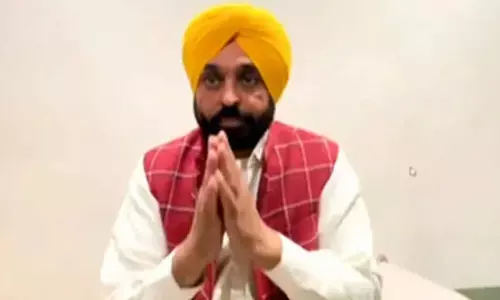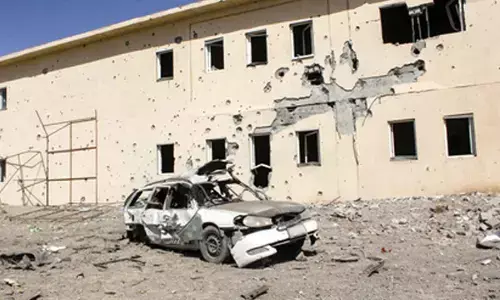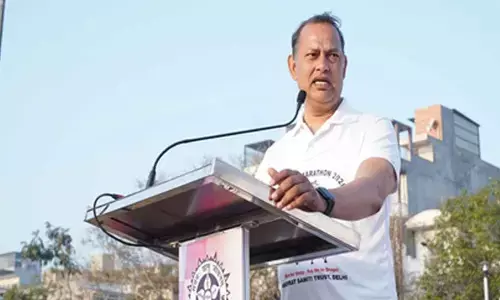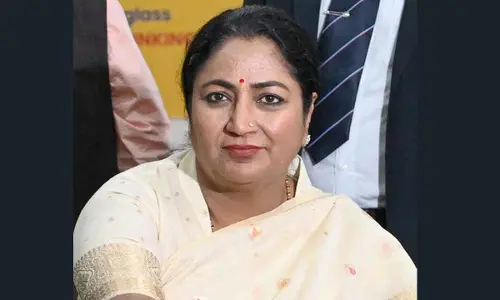What Kashmiri Pandits did to stand up and be counted
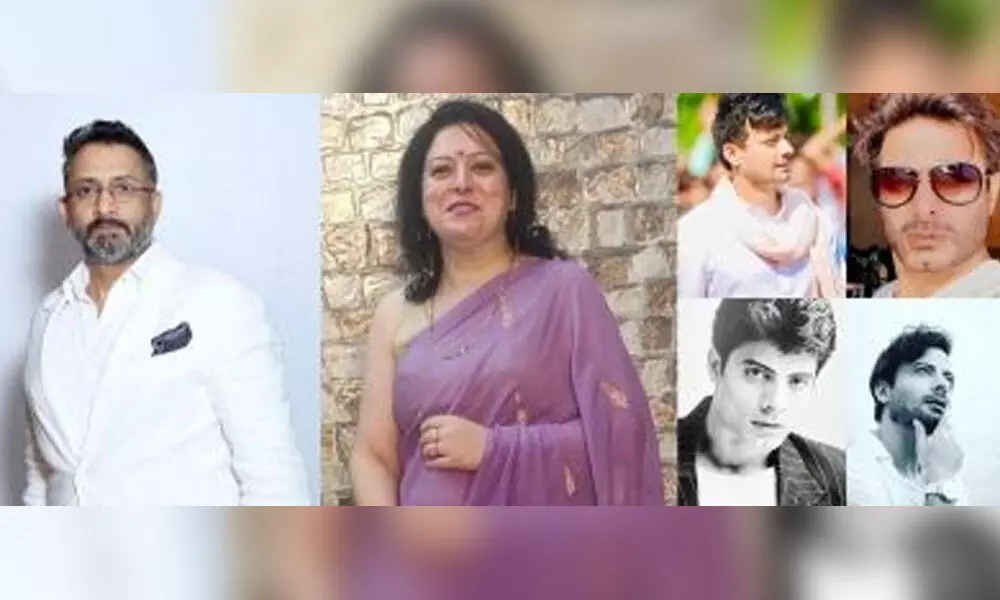
What Kashmiri Pandits did to stand up and be counted
Kashmiri Pandits, a minuscule minority community with a 5,000-year-old heritage behind it, has fought a lone battle that was meant to destroy them.
Kashmiri Pandits, a minuscule minority community with a 5,000-year-old heritage behind it, has fought a lone battle that was meant to destroy them.
The radicalised terrorism in Kashmir targeted the community en masse and forced them out of their native land. This was something which one read in books, how annihilations happened and genocide was perpetrated.
This is a modern-day tragedy that sought to break the community which was passionate about its culture, language, faith, rituals, land, mountains, rivers and lakes. A community that believed in peace, humanity, brotherhood, Kashmiriyat and literally followed the idiom that pen is mightier than sword.
With a history of 5,000 years, so exquisitely described in Rajtarangini, the community has presented itself as a lone ranger that not only survived the holocaust perpetrated upon them, but has also risen to present an example to the world.
In 1990, a majority of the community members were forced to flee from Kashmir after a wave of targeted terror crimes committed against them.
Thrown from the cool climate and comfort of living in Kashmir, the community suddenly found itself languishing in a 45-degree climate bereft of any proper clothing, roof over the head, water, food and money. Overnight they became refugees in their own state and country.
Amid that tragedy-induced chaos and misery, fight for survival and struggle to get out of the hell-hole like refugee camps, individuals emerged. A majority of the parents preferred to starve but get their children educated. A number of stories have emerged where displaced community members and their children have excelled. Those who have excelled have also been lending a helping hand to others, whether in education, health, economically or by providing jobs.
Naveen Kundu lived with his parents in Srinagar's posh area of Indira Nagar. Even though his father, a bank manager, got threats, he could not leave the Valley. But Naveen was forced to flee Kashmir in April 1990.
"I landed straight in Delhi. For 6-7 days, I was living on the streets, had nothing to eat, then I went to a camp in Lajpat Nagar. It was pathetic. I can never forget the condition that people were forced to live in. It was hot, none of us was used to the heat. It was terrible in the camp. Finally, after a few months, I was able to get a job in a tourism and travel industry.
"I had no money. In that heat I used to walk 4 kms, change two-three buses. But I worked hard and within two years, I was one of the 10 best talent pools of 'Choice Hotels'. I became the General Manager and then Vice-President. In 1998, I started my own business, Leisure Corp, and my first 10 employees were all displaced Kashmiri Pandits. My company became a Rs 150 crore company and half of the employees were my community refugees," Naveen said.
"I can never forget those days of fear and hopelessness. My immediate neighbour in Srinagar, D.N. Chaudhary, was kidnapped, killed and then his body was thrown in the verandah of his house. It was traumatic," he added.
Sushma Shalla Kaul says she has never been able to come out the trauma of her father being kidnapped, tortured and killed mercilessly.
"My father was a CID officer. His own PSO betrayed him. On May 1, 1990, he was kidnapped, tortured, his nails and hair were pulled out, his body bore burnt marks and then he was shot dead. We got his body on May 3 and we left Kashmir on May 6. We have never gone back," she said.
"My mother was a teacher, so we got staff quarters. Here my neighbours were the children of two other victims -- Girja Tickoo, who was brutally gang-raped and cut by a saw machine even as she was alive; and Prana Chatta Ganjoo and her husband whose body was found but Prana's body has never been found. So, the six of us had the same grief and we grew together," she added.
Sushma fulfilled the dream of her father, which was to become a doctor. She is currently working with a Jammu hospital and often helps the poor and the needy.
"We never got the time to mourn. Those who died were gone but those who were left behind had to survive. All of us who were displaced had lost everything. But we got ourselves educated and that is what helped us," she said.
If Sushma could build resilience, Bollywood actor Rahul Bhat says it is something special within the community that has made it bounce back.
"Our inherent belief in education, values, and culture has definitely helped us grow. We all have stories of trauma and tragedy, but each one of us has been able to grow. From Kashmir we were thrown out but they have not been able to throw Kashmir out of us," Bhat said.
An original resident of Vicharnag, a very holy place for Kashmiri Pandits, Bhat's village witnessed the first killing when an 85-year-old priest of the ancient temple was bludgeoned to death by a Muslim guard with the butt of a gun.
"We all heard wails and everyone rushed. The man was arrested. The next day a hit list was issued wherein the names of all those who had reached the temple were mentioned. When the fear became real, my family left in September 1989, much before the rest from the Valley fled," he said.
At the age of 19, Bhat participated in Mr India competition and was declared as most photogenic. He bagged several roles in TV serials like 'Heena', then movies like 'Yeh Mohabbat Hai' and 'Ugly', among others.
During the Covid pandemic, the community got into helping mode for each other. WhatsApp groups were formed which helped find hospitals and online care.
The Global Kashmiri Pandit Diaspora even raised thousands of dollars to help the needy families. It has funded an oxygen plant in Jammu and did a musical event to raise money. The Diaspora also provides scholarships to the needy.


